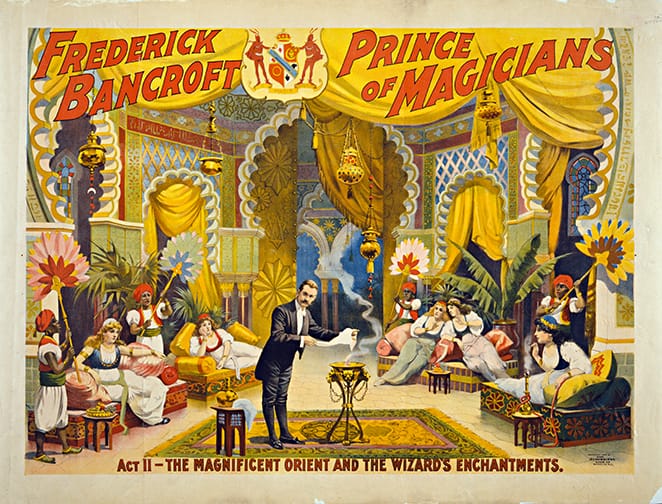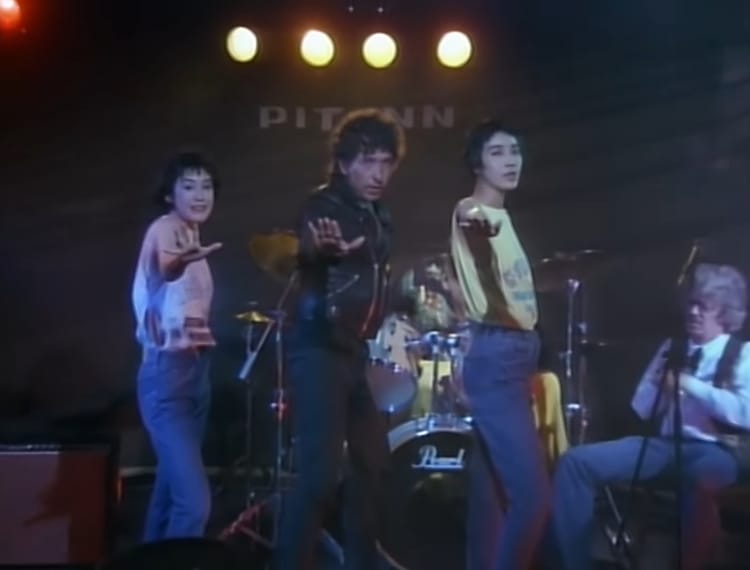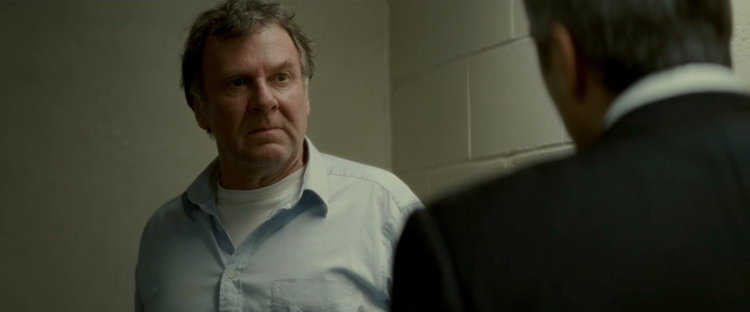My Summer of Elvis: Part One
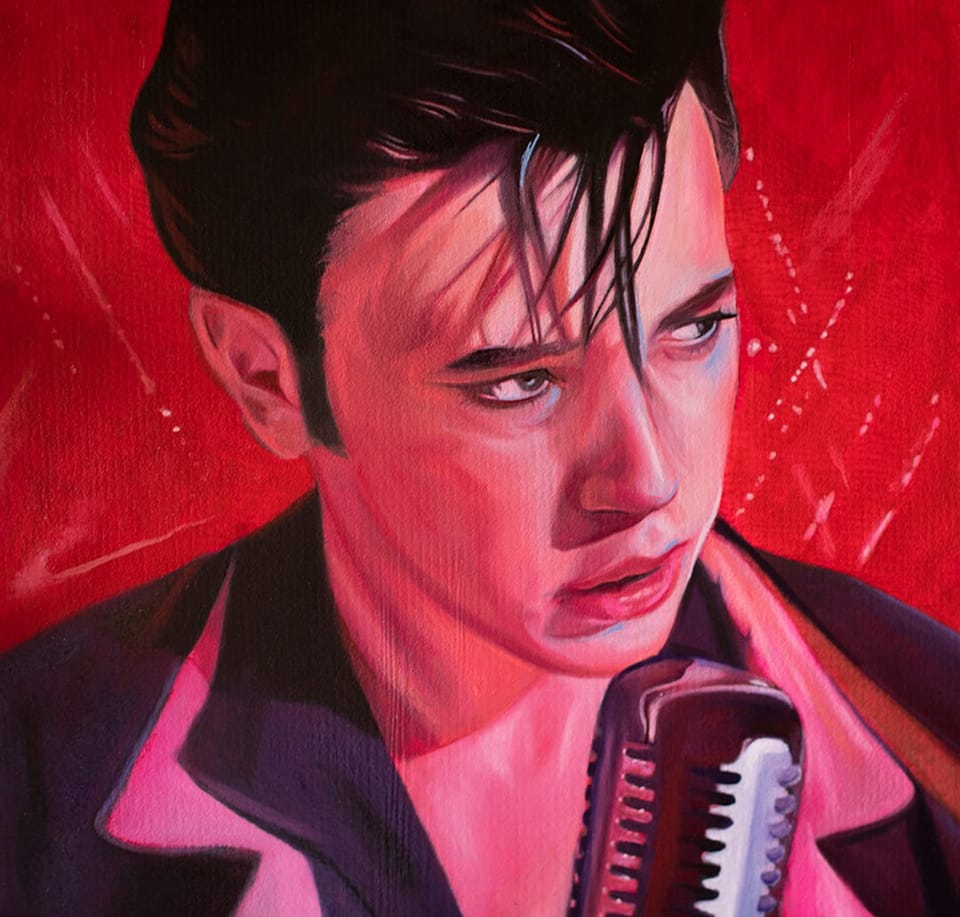
I’ll be on vacation for the next two weeks, so in lieu of a new release, I’m going to devote a couple of weeks to my obsession of the summer: Baz Luhrmann’s Elvis and (to steal Fran’s line) the titular Elvis.
I have seen Elvis six times this summer. “Mental illness!” my friend and colleague Spencer declared as I announced my fourth viewing. “Self-medication!” I replied. This is how I cope with the world’s ills—I go ritualistically to sit as close to the screen as possible and enjoy having my vision consumed by Baz Luhrmann’s interpretation of the years between 1935 and 1977. Like those people circa 2010 whose lives were ruined because they fell so in love with Avatar’s world of Pandora, I want to live inside this hyperkinetic vision of a hyperkinetic life for as much of 2022 as I can.
Beyond just returning to kneel at the altar of this movie, though, I’ve become infatuated with Elvis the man and the media figure—not necessarily Elvis the singer, though I do have a great affection for a great number of his songs, but Elvis the living myth, most often as disseminated onscreen. I’ve watched the ‘50s variety show appearances, the ‘68 “comeback special,” the 1970 Vegas documentary That’s The Way It Is, the 1972 follow-up Elvis on Tour, the blockbuster simulcast Aloha From Hawaii, and a bootleg of the long-buried 1977 CBS special Elvis in Concert. I’ve watched the almost four-hour HBO documentary Elvis Presley: The Searcher, as well as, so far, twelve of his Hollywood features. I’ve read Greil Marcus’ Presliad, Eric Wolfson’s 33 ⅓ book on From Elvis in Memphis, and, so far, the first volume of Peter Guralnick’s mammoth two-book biography. I try to remember what I knew about Elvis before June and I can’t do it; it certainly wasn’t much. But by August, I care about him as much as I’ve ever cared about any celebrity. So this week and next I’ll be running a pair of essays, one on Elvis (2022) and one on Elvis (1935 - 1977), and maybe by the end we’ll both have some better sense as to why I’ve made the choices I’ve made this summer.
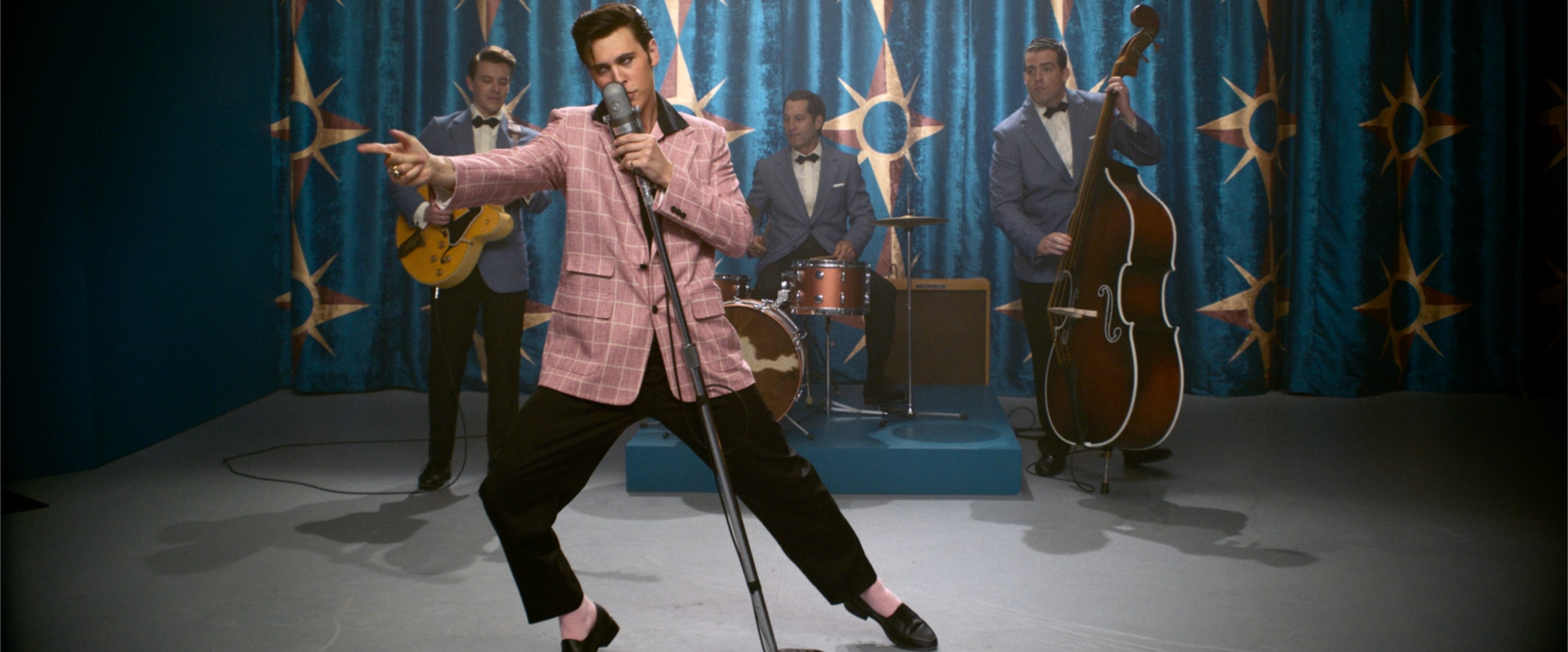
On July 11, 1955, Elvis Presley was in Sam Phillips’ Sun studio in Memphis when Phillips presented him with a new composition: “I Forgot to Remember to Forget.” It was immediately clear the song didn’t interest Elvis. “It was a slow song,” Phillips said later. “He just didn’t dig it at all.” But then Phillips had an idea—he told the drummer, Johnny Bernero, to hit the snare on the offbeat during the verse, and then drop back to 2/4 time on the chorus. As a result, the majority of the song has an anxious, driving quality that energizes an otherwise staid country ballad, an effect only heightened by the refrain that demonstrates the song’s original rhythm.
When I reached this anecdote in Peter Guralnick’s Last Train to Memphis: The Rise of Elvis Presley, it felt perfectly appropriate to the effects Baz Luhrmann employs in Elvis. Here is a traditional cinematic life story told with a snare on every offbeat, a pounding tour through familiar tropes that slows down only when absolutely necessary to demonstrate what it’s otherwise jazzing up. It’s the only way to tell Elvis’ life story and have it make any sense. In David Ritz’s book Elvis by the Presleys, Priscilla Presley is quoted describing her late ex-husband’s inability to sit still: “If he had a conversation with you, his foot would be wiggling. His body language was like his musical language, rhythmic, pulsating, always moving…Elvis [was] a man in perpetual motion.”
Luhrmann’s film—unsurprisingly to anyone who’s seen any of his prior work—similarly refuses to sit still. From the beginning, Elvis forces us to chase Elvis (Austin Butler), who isn’t seen directly in conversation for almost fifteen minutes. We catch obscured glimpses as his soon-to-be manager, “Colonel” Tom Parker (Tom Hanks), prowls Shreveport’s Municipal Memorial Auditorium in search of the rising star, but before we can meet him, we’re whipped into a comic book-style primer on Elvis’ childhood, as well as a flashback that literalizes the bridge he ran between the blues and gospel. We see him in performance in both a Vegas-set prologue and a flashback to his fateful session recording “That’s All Right,” but in either case we’re seeing Elvis as distanced by the veil of entertainment rather than Elvis the human being. Only when he steps onto the auditorium’s stage for his performance on the Louisiana Hayride is he presented as a living, breathing young man, and this stomach-dropping moment is only as effective as it is because it forms the climax of a feverish cross-cutting sequence that seems to place both the past and present in a simultaneous now that must collide and culminate before the story can begin.
Luhrmann’s caginess with Butler’s visage has a canny double effect. Not only does he maintain an air of mystique around a character who’s spoken about before he can speak for himself—a young man introduced as an emerging legend before he’s finally introduced as a young man—but it eases us into the odd pressurized space that is the biopic of one of the most famous people ever to live. Luhrmann knows what big shoes Butler is tasked with filling, and so he takes us through several layers of mystique burnishing/bursting before immersing us fully in the story’s world. First, we see individual body parts—many-ringed fingers adjusting a gilt bracelet; fabric descending to sheath an ankle-holstered pistol—followed by a full caped and jumpsuited body glimpsed from behind. And then our first full vision of Elvis is just that: a vision of the real Elvis Presley as captured on grainy 35mm film. He leaps onto an early-70s stage, commanding the screen for a microsecond before the image splits to place him alongside Butler in a pastiche of the same footage. And then the genuine article vanishes and the pastiche stylization falls away, leaving us with Butler in the world as envisioned by Baz Luhrmann.
When Elvis is finally allowed to speak for himself, introducing the Hayride performance fifteen minutes into the runtime, it forms our first real moment of stillness. This respite lasts about 60 seconds, and then things go haywire all over again. As Elvis performs “Baby Let’s Play House,” a virus is passed around: first one young woman is overcome, and she lets out a small shriek. Soon more small shrieks are erupting, and before long it’s pandemonium, as girls rush the stage and begin tearing at Elvis’ clothes until he manages to wrestle his way back into the wings to safety.
The scene feels too hyperbolic to be true—I’ve seen it compared to the analogous beat in ubiquitous biopic parody Walk Hard, wherein the gentlest pop song imaginable leads to fist-fighting and fornication in the aisles. If any moment in the scene seems to tip it into the realm of the ridiculous, it would have to be when Marion Keisker (Kate Mulvany), Sam Phillips’ assistant and by then a longtime associate of Elvis’, is overcome herself, rising to her feet to shriek with the girls. And yet the moment is fully genuine—”[I] heard someone screaming,” Keisker later said in an interview, “but all of a sudden I realized, ‘It’s me!’ This staid mother of a young son—I’d lost my total stupid mind.” If anything, Luhrmann tones down the extremity that Presley’s performances were capable of eliciting in young women—he shows Elvis easily escaping the mob rather than dramatize the 1956 Jacksonville riot that saw hundreds of girls pour into a backstage locker room, shredding Presley’s clothes until he was forced to climb onto a shower stall, barefoot and bare chested, trying feebly to keep his pants from being ripped off. If Elvis is a movie that seems too ridiculous to be true, that’s because its source material is, too.
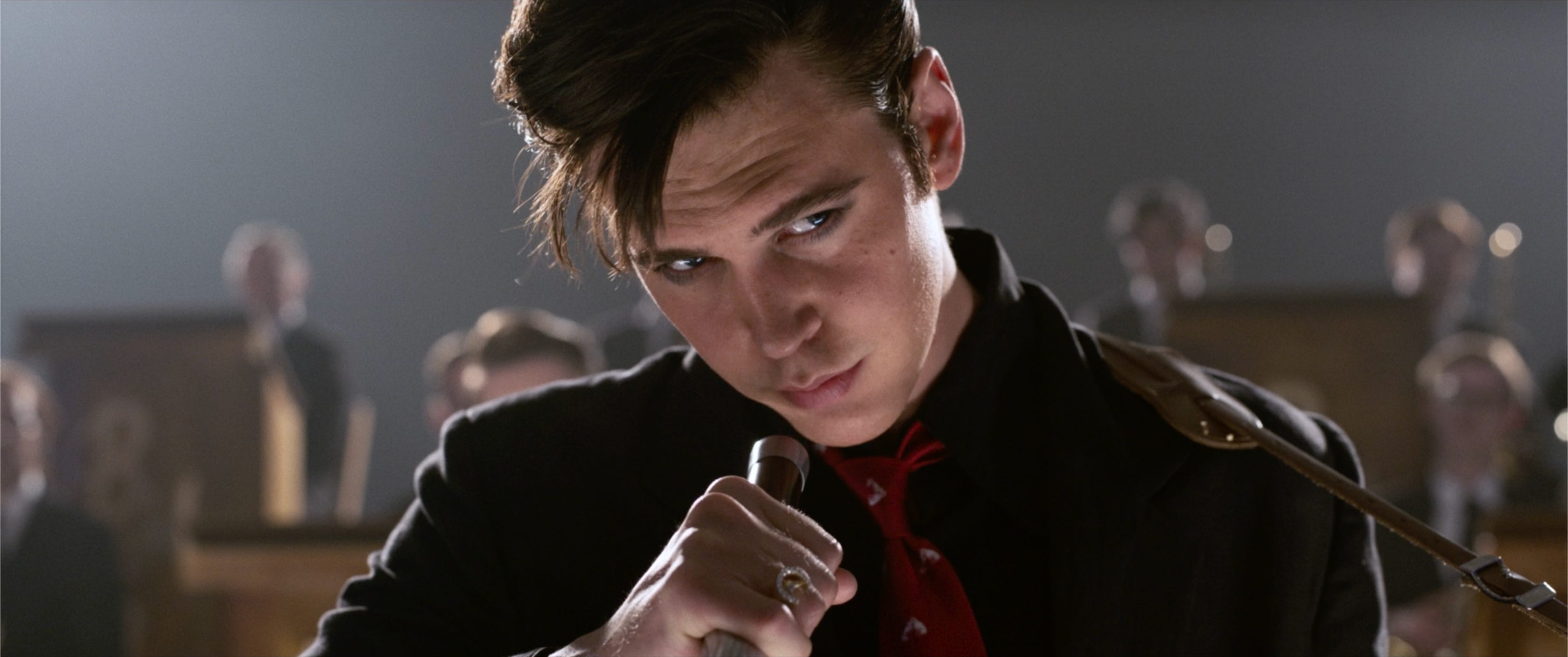
Of course, this is not to argue that Elvis is anything like realistic. Instead, it operates on a principle closer to Werner Herzog’s theory of ecstatic truth, a term I apply to a great number of my favorite films. Herzog explained his theory in his 1999 “Minnesota Declaration,” in which he defended using falsified elements in his documentaries. So-called cinéma vérité, Herzog alleged, “reaches a merely superficial truth, the truth of accountants.” More interesting to Herzog, and to me, are the “deeper strata of truth in cinema…mysterious and elusive, [able to] be reached only through fabrication and imagination and stylization.”
The moment in Elvis that feels most ecstatically truthful comes during the film’s hypnotically soaring second-act climax, which takes place during the taping of Elvis’ 1968 “comeback special.” Just as the sequence is peaking with joyful noise—”I got a feeling in my body,” Elvis howls on the soundtrack, “this may be a lucky day”—there’s the sound of a gunshot, and Elvis looks up abruptly. “Bobby Kennedy’s been shot!” someone shouts and the lights in the studio dim as the ensemble begins rushing towards a television, screaming in alarm. What’s easy to miss in the scramble is the odd effect Luhrmann has conjured: Elvis responds ahead of the chaos, as if he’s actually heard the gunshot. It’s one of two moments in which Elvis seems to function as a sort of antenna for the nation’s social ills, the other having come during his last live performance, over a decade earlier (at least in the film’s rendering of events, which collapses a few real incidents into a single explosive one).
While performing a Fourth of July charity show at Memphis’ Russwood Park, Elvis addresses the audience: “There’s a lot of people saying a lot of things,” he murmurs, looking to the sky much as he does while “hearing” Kennedy’s assassination. On the soundtrack, we hear an echoing segregationist rally taking place three miles away (another detail that seems too auspicious to be real and yet is indeed based in truth), and Elvis continues, “but in the end you’ve gotta listen to yourself.” The implication, again, is that Elvis can hear the vicious rhetoric as well as we can—and while perhaps an amplified speech could be heard at a distance of three miles, that arguable plausibility seems beside the point. In Luhrmann’s vision of the world, all relevant events are collapsed into one constantly cross-cutting mise-en-scène. It’s not just filmic reality as montage, but diegetic.
Could these events have happened precisely this way? That’s ultimately irrelevant. What matters is that it captures the essence of the story—it’s less truthful than truthy, to quote a trademark term of The Colbert Report. “Truthiness,” as Stephen Colbert defined it in 2005, “is a truth larger than the facts that would comprise it.” This can be a dangerous concept when applied to governmental messaging, as Colbert primarily meant it, and some would argue it’s damaging in works of dramatized nonfiction, too. But if this is a truthy movie, that seems appropriate to me, particularly given the fact that what we’re presented with is a memory play in the most classical sense.
This isn’t Elvis’ memory play, but the Colonel’s. The story is narrated from within two nested realities—lying in a hospital bed where he clings futilely to life, the Colonel seems to astrally project onto a cavernous casino floor from which he unreliably narrates the story. His lies are transparent, and often at odds with what’s shown on-screen, but the device allows for exactly the ecstatic truthiness that leaves me so enamored with the movie. The term “memory play” originated in Tennessee Williams’ The Glass Menagerie, which opens with stage directions explaining, “The scene is memory and is therefore nonrealistic. Memory takes a lot of poetic license. It omits some details; others are exaggerated, according to the emotional value of the articles it touches.” The play itself opens with a monologue delivered in direct address by the protagonist, Tom Wingfield. “I have tricks in my pocket,” he tells us. “I give you truth in the pleasant disguise of illusion.” The lines could just as easily belong to the Colonel, who opens Elvis with his own form of disclaimer—as he introduces himself as a carny first and foremost, it’s probably best to take what follows as an act of deception, not a history lesson. And, like Tom Wingfield says, “in memory, everything seems to happen to music.”
If, as Williams wrote, the truth of a memory play is guided by its emotional value to the bearer of the memory, then it makes sense that one of the rare moments in which Elvis comes to rest is in the introduction of the Colonel’s trove of merchandise. In the space of one montage, we accelerate through a substantial portion of Elvis’ rise to fame, including some of the richest narrative material to be found in the Elvis Presley story. “Everywhere he goes, he causes riots,” a news announcer is heard saying, and we catch a split-second glimpse of just that; the word millionaire floats across the screen in newsprint; his visage looms above the marquee for his first film, Love Me Tender, about which we hear no more. Only then does the scene settle upon the Colonel’s most significant innovation: Elvis Presley knickknacks. In one of Elvis’ rare instances of essentially naturalistic filmmaking, the Colonel shows the Presleys his bevy of purchasable items, his true passion (as he has already explained to us, “I don’t know nothin’ about music”).
In moments like the merchandise scene, the film’s magnetic pull is exerted: thematically, this story is drawn eternally back to Las Vegas, the setting for the last act of not just the film but Elvis’ life. This is where the Colonel’s capitalist élan is able to flourish most profoundly—describing the Vegas years in Elvis Presley: The Searcher, Tom Petty conjures an image of Tom Parker achieving his truest form: “My picture of the Colonel really is someone that loves selling merchandise,” Petty says, “that wants to, to the end, walk the aisles selling posters and ballpoint pens.” With all roads leading towards this ultimate fruition of the Colonel’s branded dreams—the straight line drawn from “I love Elvis” pins in 1957 to the artist himself being reconfigured into an asset for the International, soon to be his living mausoleum, in 1969 and beyond—Elvis reveals itself as not just a story with a tragic ending, but as a tragedy in the classical sense, a story of a character not ambushed by a tragic end but destined for one.
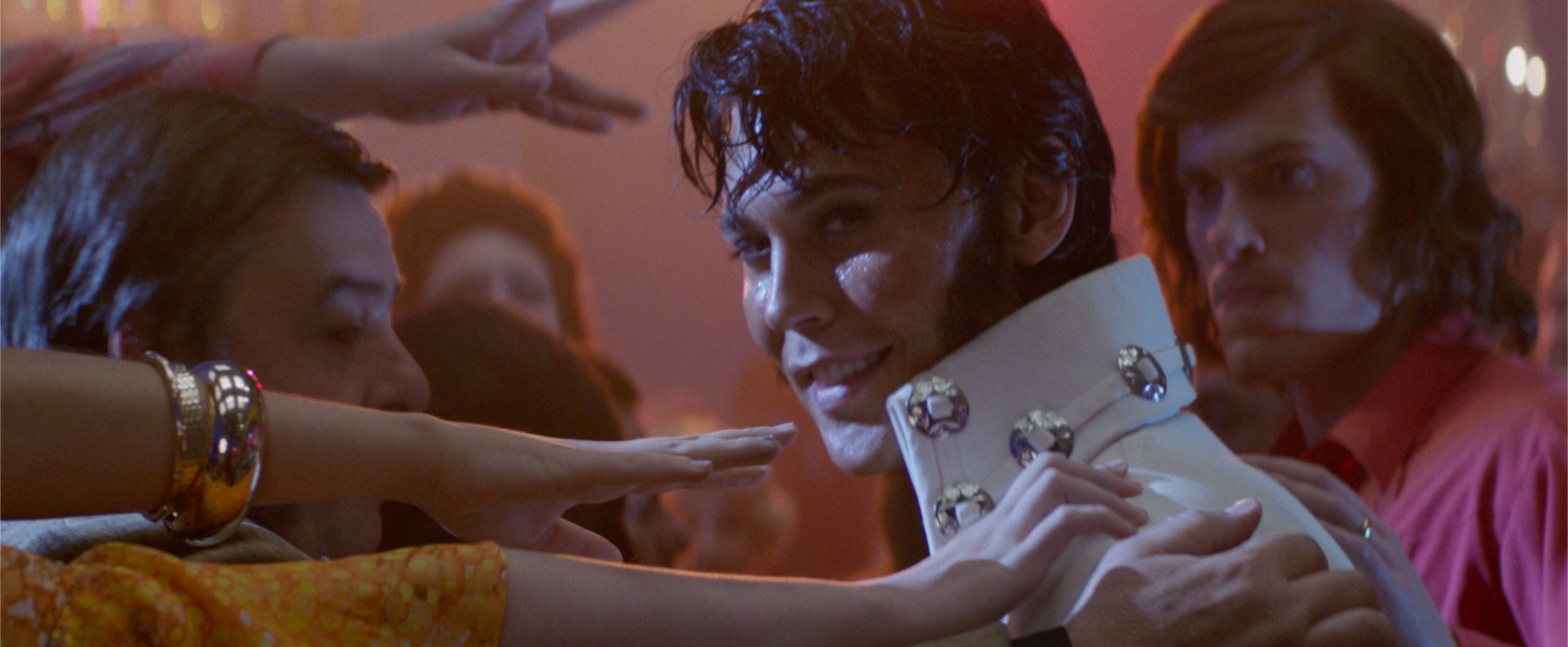
Since striking on this idea, I’ve wondered whether Elvis could be characterized as a Greek tragedy or a Shakespearean one. It’s a distinction without a consensus definition, but I’ve always appreciated Roger Ebert’s attempt to differentiate the two subgenres—as he described it in, of all places, his review of Road to Perdition, Shakespearean tragic figures are doomed by their “quirks of character,” while Greek tragic figures are “[dealt] out remorseless fates,” their dooms “preordained.” Thus, maybe it’s best to categorize Elvis as Greek tragedy, a story in which catharsis (Aristotle’s proposed ideal endpoint for a tragic story) is achieved through the stimulation of fear and pity (Justina Gregory’s proposed base emotions that differentiate tragedy from other Greek dramatic forms). The Elvis of Luhrmann’s film is not shown to have a clear personal quirk that triggers his downfall; rather, he is fated to a bitter end by virtue of being born with a singular talent that sets him on a collision course with the Colonel.
On the other hand, it might be best to classify this as a uniquely American tragedy, motivated from all directions by capitalist fervor. It’s not a term used quite as dogmatically as the Shakespearean or Greek equivalents, but if it could be embodied by one story, it would probably be appropriate to point to Theodore Dreiser’s 1925 novel An American Tragedy, a story in which a character is doomed by his desire for luxury. “Born in the slums,” Richard Lehan describes the central character in ‘Dreiser’s An American Tragedy: A Critical Study,’ “[he] romanticizes the idea of wealth…and longs for the life of riches and pleasure.” Similarly, Elvis’ childhood poverty is generally considered central to his life story, motivating his upward mobility, as well as his ever more extravagant spending and personal fashion, as though only by continually demonstrating his affluence could he prove to himself that the past really was behind him. In An American Tragedy, the protagonist’s “world gets more luxurious as he moves through the [story],” Lehan writes. “The more [he] sees, the more he wants.” It’s something like a combination of Ebert’s vision of Shakespearean and Greek tragedies: an American tragic hero’s downfall might come from the personal quirk of desire, but that quirk itself is predestined by virtue of being a modern American.
Las Vegas, the ultimate tragic stage, is treated with consummate sturm und drang in Elvis, triggering no small sense of fear and pity. The camera cruises towards the International through a column of flames as a choir, seemingly taking its cues from Carl Orff, howls away on the soundtrack. But even as a mood of doom accrues exponentially, this last act features the sequence that, more than any other, has brought me back to Elvis, inspiring me to devote a combined 954 minutes of my summer to one movie.
It comes just prior to Elvis’ first engagement at the International. “I wanna try something new,” he intones, standing onstage during a rehearsal. He addresses his band, his two backup groups, and his orchestra, turning first to pianist Glen D. Hardin. “Start us off,” Elvis says, and then he shuts his eyes tight and starts bobbing his hand, waving his fingers rhythmically and muttering, “Bum, buh-buh, buh-buh.” In a moment, Glen has turned this syncopated mutter into a simple loop of chords. Elvis looks to the heavens—the same gesture he’s made twice before while tuning in to whatever collective unconscious spirit for which he acts as a conduit—continuing his staccato incantation. Then, he turns to bassist Jerry Scheff and instructs him, “Bring that bass up.” Jerry does, and Elvis moves on, beginning to shake his hips, the chains he wears on his waist rustling in time. He gestures to one of his backing groups, the Sweet Inspirations, who pick up the refrain of “That’s All Right,” and then he tells his other backing group, the Imperials, “With me!” They join in, too, and he cues guitarist James Burton. James begins a lick, to which Elvis joyously replies, “Flames are coming out of that guitar!”
Butler is at his finest in this scene, embodying Elvis at perhaps the peak of his extremity—he will become a more extreme version of himself with time, but that period will be a trough. This is a glorious extremity, a man possessed of a fearsomely intense joie de vivre. And then, at least for my purposes, we arrive at the film’s height. “Horns,” Elvis says, “you ready?” He honks out a vocal, “Bah-dah-bahh, bah-dah-bohh.” The horns respond, but Elvis hollers, “Up the octave!” and they respond instantly an octave higher. In a tight close-up, Elvis beams. “Yeah!” he howls.
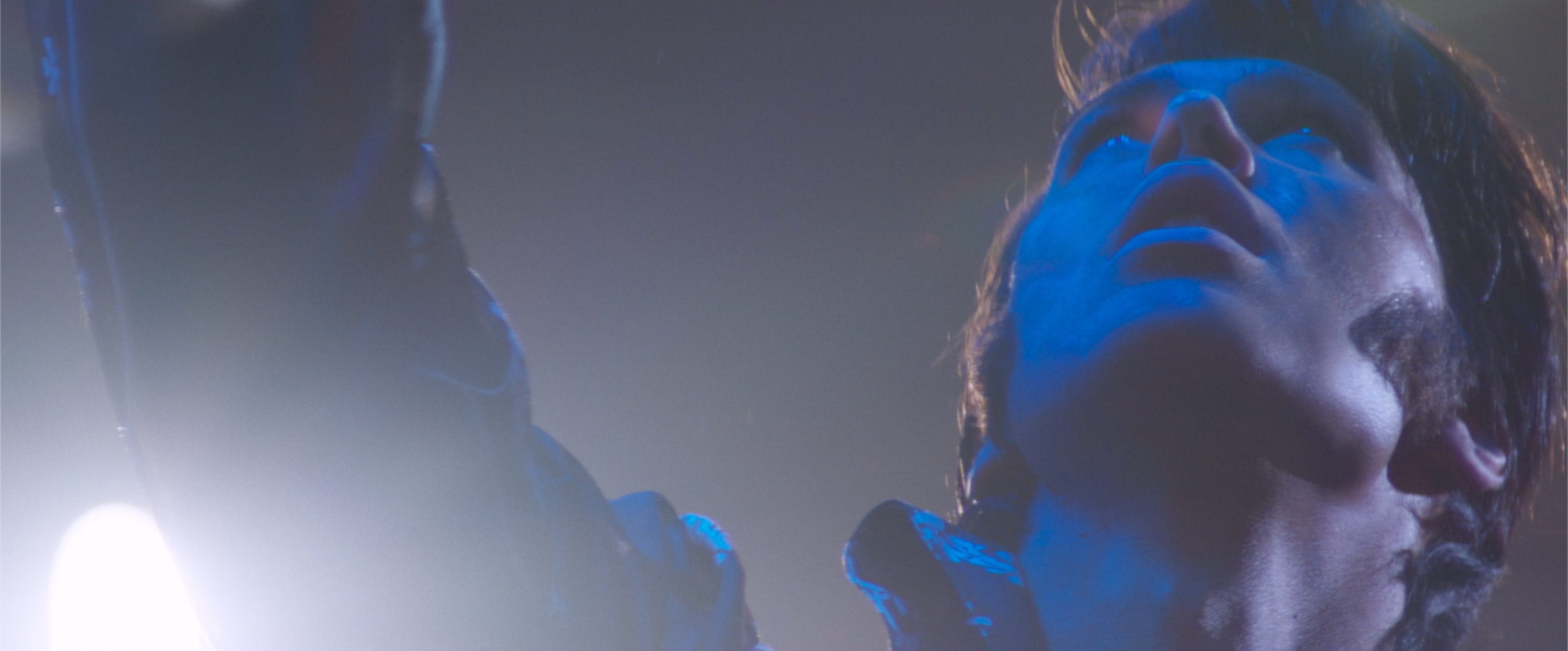
The scene goes on. Soon there will be a ferocious drum solo—“Take us home,” Elvis will instruct drummer Ron Tutt—that launches us into the first night before a packed International house. We will cruise from the present into two different dimensions of the past—Elvis observing a bluesman in a shack, and Elvis recording at Sun—which coalesce through the magic of film editing to join the Vegas show in taking place within that simultaneous now the film swims through. But these oncoming fireworks are secondary to me. The rehearsal scene is all that matters. The depiction of an arrangement coming together is thrilling, but I also find the scene as poignant as Elvis gets. The International may doom him, but first it provides a forum through which to demonstrate his ultimate artistry.
Elvis Presley may never have written a song in his life (his writing credit on a handful of tracks represented one of the Colonel’s many snowjobs), but he was capable of remarkable acts of creation by virtue of his ability to hear a sound in his head and conjure it into three dimensions. Just as “That’s All Right,” a blues number adrenalized by Elvis in defiance of the era’s conventional wisdom, served as the first grist for this mill back in Memphis, so it becomes the raw material for his ultimate bombast, a sound that flows from his mind into the minds of his collaborators and so into the mind of the audience, broadcasting a shared dream from within one extraordinary talent. If Elvis had any unique vision, it was as a producer of his own sound, and Luhrmann has the compassion to offer this moment of grace to the character and the audience. Elvis may be a movie about money, but every so often, it becomes a movie solely and exquisitely about music.
The first time we hear “That’s All Right” in Elvis, it’s on a portable record player, which merges with a radio broadcast, demonstrating the song’s ubiquity. “What do you say,” the DJ asks as the song ends. “Should we play it for a 27th time?” I’m not sure I could go see Elvis in the theater 27 times, but I’m also not entirely sure I couldn’t. There’s a feeling I get from this movie—a feeling in my body that this may be a lucky day—that remains hard for me to describe, even all these thousands of words later. There are any number of thrilling moments, certainly, many of which can be chalked up to Luhrmann’s palpable exhilaration restaging existing cinematic material, whether it be the comeback special or the footage found in That’s the Way It Is and Elvis on Tour, each of which receives a tacit Luhrmannized remake that finds his camerawork at its most orgiastic. But it’s something larger than that. I would never call Elvis great art; it’s too rock-stupid, with every one of its themes (Elvis was ultimately a sideshow attraction) underlined so painfully literally (observing a carnival, Elvis’ foregrounded face goes blurry as we rack focus to a sign advertising the geek) that it’s hard to defend Luhrmann as a consummate film artist. But it seems to me that Elvis means something more than just the story of Elvis and his cultural impact, just as Elvis himself served as a vessel for more than just his own life story and capacity to spark artistic evolutions.
Writing in 1975, Greil Marcus attempted to account for the enduring appeal of Elvis Presley concerts, even as the artist himself slid into the lowest ebb he would reach. Perhaps, Marcus theorized, Presley’s audience was simply “glad to leave whatever they had made of [the recent past] behind and join him in his pageant.” Perhaps the king of rock and roll now provided “a very glamorous home for our own retreats.” I think that accounts for the safe haven I find in whatever screening room might be showing me Elvis on a given day—I can leave 2022 behind and slip into a glamorous retreat that won’t force me to consider anything that happened any later than nine years before my birth. That makes sense intellectually.
On the other hand: on my most recent trip to the multiplex, I sat in the very first row, letting the movie scour my eyes and my mind. And as the credits rolled, I finally turned around to see what the house—fairly packed, despite it being a 12:30 showing on a Tuesday four weeks after release day—looked like. I saw that just behind me there was another solo theatergoer; she was, I would learn, 82 years old, and she was visibly overcome with emotion. I lingered in the lobby after the credits and waited for her to emerge, and when she did, I asked whether we could talk for a few minutes—I was curious for the perspective of anyone who’d lived through Elvis’ lifetime—and she obliged.
I asked what appealed to her about Elvis, and she told me that while “we liked all that stuff, like those girls, just because of that stuff,” ultimately, “I think you can’t even really see it.” Similarly, when I asked what she thought of the movie, she said, “I really enjoyed it, but I can’t really tell you why.” Instead, she pointed at her chest. “It’s more in here.”
Maybe that’s so. Elvis may have been the king, but my theatergoing acquaintance’s comments reminded me of the story of a prince, and Antoine de Saint-Exupéry’s classic line: “It is only in the heart that one can see rightly; what is essential is invisible to the eye.”
But, of course, Elvis was more visible than most anyone has ever been, and that’s the factor that I’ll be tackling next week in part two of My Summer of Elvis: the real Elvis onscreen across the decades, and what it meant to see and be seen in that filmic and/or televisual glow. No sundry ephemera this week or next. It would just be about Elvis anyway. Isn’t everything?

